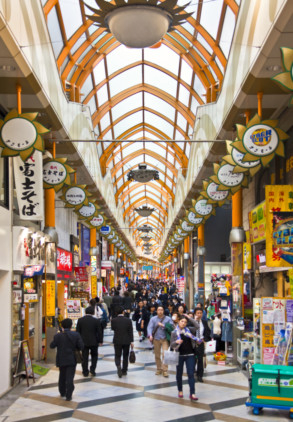
The Japanese government announced a much needed 880.3 billion yen (Dh39.4 billion) economic stimulus package ahead of this month’s election as it seeks to prop up the nation’s faltering economy. It was the second stimulus package in little more than a month from Prime Minister Yoshihiko Noda.
Such measures are vital with the country having been in recession mode since the global economic crisis of 2008. Neither measures of quantitative easing or record low interbank interest rates have helped resolve the problems that led to continued deflation. The economy took a further dive when the tsunami hit the country in 2011 and, in subsequent years, growth is likely to hover at just around 1 per cent, according to research by the International Monetary Fund.
The next Japanese general election will be held on December 16, and the challenges for the new government will be huge. The country needs to stabilise its export market, which has been hit hard by the sluggish US recovery, the economic downturn in the Eurozone and decreasing demand from China. Domestic private consumption is low, while industrial production, especially in the formerly dominant electronics sector, is weakening. The elections will be held in a stagnating to contracting fourth quarter, and policy stimulus, including an extra budget, seems to be the only engine to fuel Japan’s growth for the time being.
In its monthly economic report released in October, the Japanese government said the economic recovery “is in a weak tone recently due to deceleration of the world economy”. It added that it expects movement towards recovery to pause in the short to mid-term and that “a degree of uncertainty about the external economic prospects of the Eurozone and Asia, notably China, remains high”.
More than two decades after Japan’s asset bubble burst in the early 1990s its policymakers have yet to devise an effective strategy to help the economy break out of its deflationary funk. Meanwhile, the Japanese yen remains stubbornly high, discouraging its companies from investing at home and undermining its export competitiveness, especially against rivals Germany, Taiwan, South Korea and the rising Asean nations.
Public expenditure is expected to fall in the first half of the year due to the peaking of reconstruction-related demand after the tsunami disaster in 2011, says Tokyo-based Mizuho Research Institute in its economic forecast for 2012.
Another issue of concern is the planned sales tax rise. Both the government’s lower and upper houses voted in approval to double Japan’s 5 per cent sales tax by 2015 in several steps — half of it is understood to go into effect before the end of 2013. This will lead, according to Mizuho, to a rush of demand prior to a consumption tax hike, but later on will lead to a decline in purchasing power and a backlash in demand from 2014 onwards.
Opposition policymakers have said that in the current situation, the tax increase will put a tight limit on family expenses. Many expect that public spending, while showing slow recovery after last year’s disaster, will take a sudden plunge once the sales tax goes up. Government incentives for households to purchase fuel-efficient cars – measures that have been supporting consumer spending, which accounts for more than half of the economy — are running out this year, dealing another blow to domestic consumption.
But it isn’t all bad news. Japanese companies increased capital spending by 2.4 per cent, the Ministry of Finance said last month, indicating that any contraction in that economy may be short-lived. Economists surveyed by Bloomberg had forecast a 1 per cent gain.
Either way, December’s elections are seen as crucial to steer the country back on the road to recovery.
— Special to GN Focus







